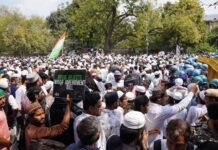The United Arab Emirates and the Kingdom of Saudi Arabia will provide Egypt with nearly $20 billion in a fresh aid package to be negotiated after the inauguration of the new president and “former” military general, Abdel Fattah al-Sisi.
Regional media is reporting that Saudi Arabia has already officially informed Egypt, during talks with the former Prime Minister Dr Hazem Beblawy, that the continued support is conditioned on the accession of Field Marshal Abdel Fattah Al-Sisi as president, and no one else.
The package will include deposits in the central bank to support the Egyptian pound, which has lately suffered a drop against the US dollar. It will also include low-interest loans; investments in water and sanitation projects; schools; the financing of projects for low-income citizens and the poor; the establishment of a Saudi-funded residential city in El Alamein; financing the creation of silos for storing grain; fulfilling Egypt’s petroleum products needs; particularly gas and diesel; and encouraging investors from both countries to pump huge investments into Egypt to revive its economy.
A high-level Egyptian delegation is scheduled to visit the UAE and KSA within the next few weeks to discuss the aid package as well as projects that are being completed as part of previous aid obtained by Egypt from the two countries.
Gulf aid to Egypt following the July 3 military coup has amounted to $15.9 billion, including $6.9 billion from the UAE and $5 billion from KSA.
Successful boycott
More than 200 Muslim scholars issued a fatwa last Sunday forbidding participation in the current presidential elections in Egypt.
Subscribe to our newsletter and stay updated on the latest news and updates from around the Muslim world!
The signatories to the fatwa include the president of the International Union of Islamic Scholars Sheikh Yusuf al- Qardawi, Kuwaiti MP Walid al-Tabtaba’y and Kuwaiti scholar Nabil Al-Awadi.
The General Guide of the Muslim Brotherhood Dr Mohamed Badie said that the nationwide boycott of the 2014 presidential elections proves that the Egyptian people has “insisted on providing a model worthy of emulation.”
Badie made the remarks after his “Istikama mosque trial” session had been adjourned on Saturday. Badie added: “Even if they imposed a E£500,000 (EGP) penalty for their boycott, the Egyptian people would not take part.”






















